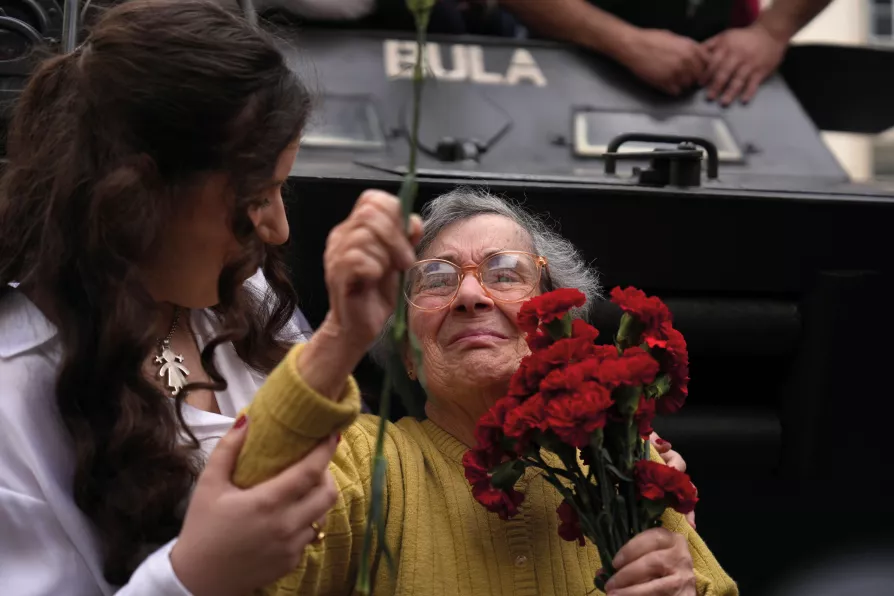As tens of thousands return to the streets for the first national Palestine march of 2026, this movement refuses to be sidelined or silenced, says PETER LEARY

 CARNATION REVOLUTIONARY: Celeste Caeiro, 90, holds red carnations, in Lisbon, April 25 2024. Fifty years ago, Caeiro handed out carnations to rebel soldiers, thus naming the 1974 army coup that restored democracy
CARNATION REVOLUTIONARY: Celeste Caeiro, 90, holds red carnations, in Lisbon, April 25 2024. Fifty years ago, Caeiro handed out carnations to rebel soldiers, thus naming the 1974 army coup that restored democracy
THE whole revolution had to be planned in such secrecy that only a few officers knew about it and no-one could be certain how far other regiments would support them.
It is amazing how small groups of soldiers, like these with their obsolete vehicles, were nevertheless able to frighten and scatter the dictatorship’s demoralised forces.
“We had strict instructions not to open fire unless absolutely necessary,” a major tells us. “We wanted to avoid the spilling of blood at all costs, so we spoke to the non-committed troops trying to win them over to our side. This we managed to do. Only one or two top-ranking officers refused to join us, and they were arrested.” It was a totally bloodless revolution.

Corbyn and Sultana’s ‘Your Party’ represents the first attempt at mass socialist organisation since the CPGB’s formation in 1921, argues DYLAN MURPHY

Communists lit the spark in the fight against Nazi German occupation, triggering organised sabotage and building bridges between political movements. Many paid with their lives, says Anders Hauch Fenger

JOHN GREEN welcomes an insider account of the achievements and failures of the transition to democracy in Portugal











